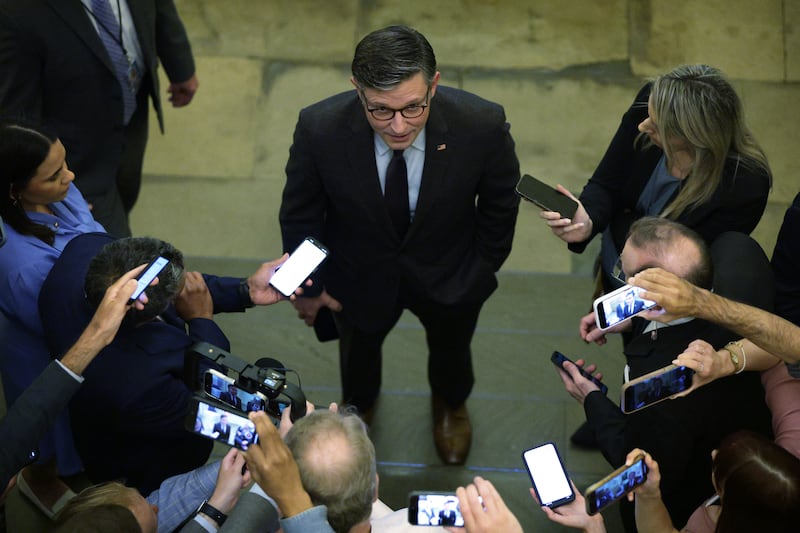Just weeks after easing his self-imposed tariff turmoil, President Donald Trump may soon face fresh economic turbulence that could derail his agenda.
U.S. Treasury yields spiked on Monday, signaling investor jitters over the national debt—just as Trump tries to push through his “big, beautiful” tax bill that experts warn would add trillions to the deficit. The 30-year Treasury yield, which rise as the price of the bond falls, briefly rose above 5 percent while the 10-year Treasury yield reached 4.479 percent.
Analysts were quick to point out that the last time yields were this high, Trump became jittery about his tariffs plan and made changes.
ADVERTISEMENT
“We are now reaching yield levels that previously seemed to trigger sensitivity from the U.S. administration,” Deutsche Bank wrote in a note Thursday, “though the recent moves are much more orderly than they were in early April.”
The bond selloff comes after Moody’s downgraded the U.S. government’s credit rating Friday—delivering a blow to its reputation as the world’s safest borrower—and suggests investors are concerned about the U.S. government’s ability to get its growing debt under control, especially as House Republicans advance the party’s tax bill, which cuts taxes while backloading spending cuts.

The Committee for a Responsible Federal Budget, a nonpartisan fiscal watchdog group, estimates that the House bill will add around $3.3 trillion to the debt—which is approaching 100 percent of GDP—over the next decade.
“The combination of diminished appetite to buy U.S. assets and the rigidity of a U.S. fiscal process that locks in very high deficits is what is making the [bond] market very nervous,” George Saravelos, the global head of foreign exchange research at Deutsche Bank, wrote Monday.
Peter Berezin, the chief global strategist at BCA Research, told Business Insider he believes there’s a 30 percent chance the tax bill initiates a “nightmare scenario” in the bond market by sending the 10-year U.S. yield past 6 percent and causing a fiscal crisis.
“Unless Trump is willing to cut these entitlement programs for defense spending or raise taxes, none of which I think he’d be willing to do easily, we could see this crisis play out in a fairly significant way where yields go up quite a bit before the Fed can step in,” Berezin said.
Rising bond yields also hurt consumers directly by driving up interest rates on mortgages, credit cards, and loans.
The question is whether volatility in the bond market will pressure Trump and Republicans to rethink their bill, which aims to make the 2017 Trump tax cuts permanent.
In April, a selloff in bonds apparently spooked the president into reversing most of the tariffs that he had rolled out on “Liberation Day.”
“People were getting a little queasy,” Trump said at the time. “The bond market is very tricky.”





